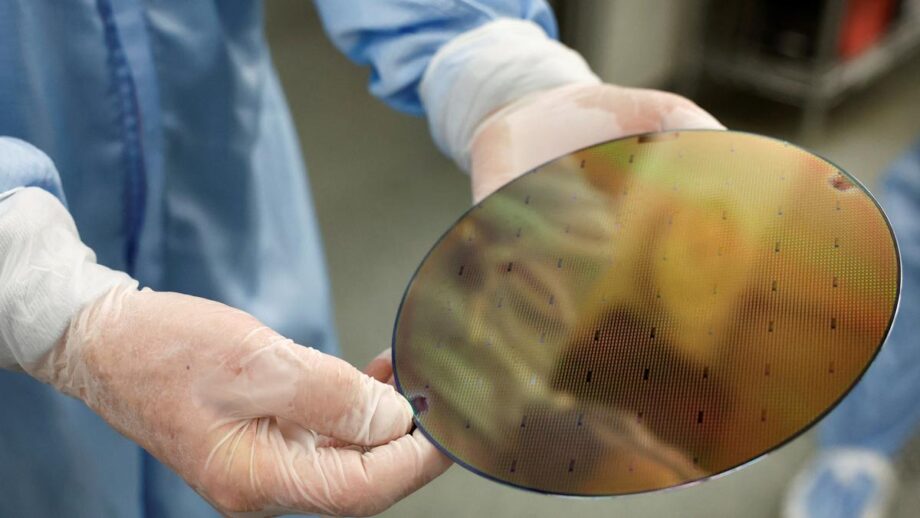- European labs, led by imec, are set to receive $2.7 billion in funding under the European Chips Act to develop and test advanced computer chips.
- The funding aims to establish a pilot line for sub-2 nanometre chips to support European industry, academia, and start-ups in accessing costly chip manufacturing technology.
- Top chipmakers like TSMC, Intel, and Samsung are already working on 2 nanometre chips in commercial plants, costing up to $20 billion euros.
- The investment will accelerate innovation, strengthen the European chip ecosystem, and drive economic growth across industries such as automotive, telecommunications, and health.
- Other research labs involved in the initiative include CEA-Leti, Fraunhofer, VTT, CSSNT, and the Tyndall Institute, with various EU programs and industry players contributing to the funding.
imec labs Secures $2.7 Billion Funding for Future Chip Development
In a significant development for the European research landscape, leading labs spearheaded by imec are set to receive a substantial funding injection of 2.5 billion euros ($2.72 billion) under the European Chips Act. This funding aims to establish a pilot line dedicated to the development and testing of cutting-edge computer chips, marking a crucial step towards advancing chip manufacturing technology in Europe.
European Chips Act: Boosting Domestic Chipmaking
The European Union’s ambitious 43 billion euro Chips Act, unveiled in 2023, seeks to bolster the domestic chipmaking industry in Europe. This initiative comes in response to the global chip shortages experienced during the COVID-19 pandemic and the efforts of countries like China, the U.S., and others to fortify their own semiconductor industries.
Imec, headquartered in Leuven, Belgium, will take the lead in hosting the pilot line for sub-2 nanometer chips. This facility will serve as a vital resource for European industry players, academic institutions, and startups, offering them access to chip manufacturing technologies that would typically be financially out of reach for individual entities. With major players like TSMC, Intel, and Samsung gearing up to launch 2 nanometer chips in the near future, the importance of this funding and research initiative cannot be overstated.
Related Video

Accelerating Innovation with the NanoIC Pilot Line
The investment secured by imec is poised to facilitate a significant increase in production volumes and learning speed, thereby accelerating the pace of innovation. By strengthening the European chip ecosystem, imec aims to drive economic growth across the region. The NanoIC pilot line will cater to a diverse array of industries, including automotive, telecommunications, healthcare, and beyond, underscoring its potential for widespread impact.
Imec CEO Luc Van den Hove emphasized the strategic significance of this funding, stating, “The investment will allow us to double volumes and learning speed, accelerating our innovation pace, strengthening the European chip ecosystem, and driving economic growth in Europe.” The collaborative efforts involving industry players, governmental support, and research institutions signify a concerted push towards technological advancement and sustainability in chip manufacturing.
Diverse Participation and Future Prospects
Apart from imec, several prominent research laboratories across Europe are set to contribute to the development of next-generation chips. Institutions such as CEA-Leti in France, Fraunhofer in Germany, VTT in Finland, CSSNT in Romania, and the Tyndall Institute in Ireland are actively involved in this pioneering initiative. The pooling of resources, expertise, and innovation from these diverse entities highlights the collective commitment to propelling Europe to the forefront of semiconductor technology.
The funding allocated under the EU plan underscores a collaborative approach, with significant contributions from member states and industry leaders. While Europe has historically lagged behind other regions in terms of semiconductor investments, initiatives like the Chips Act signify a concerted effort to bridge that gap and establish the region as a key player in the global semiconductor landscape. Companies like ASML, along with governmental support from programs and agencies, are pivotal in driving this transformative agenda forward.
The substantial funding secured by imec and its collaborative partners represents a pivotal moment in the evolution of chip manufacturing in Europe. With a focus on innovation, sustainability, and economic growth, the efforts spearheaded by imec are poised to reshape the semiconductor industry landscape in the region and beyond. By fostering collaboration, driving technological advancement, and nurturing talent, the European labs led by imec are at the forefront of ushering in a new era of chip development and manufacturing.
Links to additional Resources: